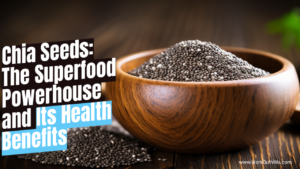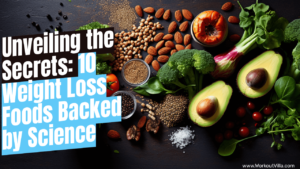Welcome to Heart Crusaders, where we believe in heart-healthy foods’ power to transform cardiovascular health and well-being. Our movement is all about understanding the impact of dietary choices on your heart and taking control of your heart health through the magic of nutrition.
By embracing a plant-based, nutritious diet, you can reduce the risk of heart disease and other related ailments and unlock the potential of a thriving heart. Join us on this journey as we explore the significance of heart-healthy foods and how they can work wonders for your heart.
Key Takeaways:
- Heart Crusaders promotes the power of heart-healthy foods in maintaining cardiovascular health.
- A plant-based, nutritious diet can reduce the risk of heart disease and improve overall well-being.
- Heart-healthy foods can unleash the potential of a thriving heart.
- Join the Heart Crusaders movement to take control of your heart health.
- Embrace the magic of nutrition and transform your cardiovascular health.
The Power of Heart-Healthy Foods
Heart health is of utmost importance when it comes to maintaining optimal health. By incorporating heart-healthy foods into your diet, you can take proactive steps toward promoting a healthy heart and overall well-being.
Why Focus on Heart Health?
The heart is a vital organ that pumps oxygen-rich blood throughout the body. It is crucial in maintaining the body’s overall function and vitality. However, various lifestyle factors, such as poor diet and sedentary habits, can contribute to the development of heart disease, a leading cause of mortality worldwide.
Individuals can reduce their risk of heart disease and its associated complications by prioritizing heart health. Adopting a diet rich in heart-healthy foods effectively supports cardiovascular health and maintains a healthy heart.
The Role of Diet in Heart Health
The saying “you are what you eat” holds regarding heart health. The foods we consume on a regular basis can significantly impact the health of our heart and blood vessels. A diet high in saturated fats, cholesterol, and sodium can contribute to the development of heart disease, while a diet rich in heart-healthy foods can have the opposite effect.
A heart-healthy diet focuses on consuming nutrient-dense foods that provide essential vitamins, minerals, fiber, and antioxidants. These foods help to reduce inflammation, lower cholesterol levels, regulate blood pressure, and support overall cardiovascular health.
Introduction to Heart-Healthy Foods
Heart-healthy foods encompass a wide range of beneficial cardiovascular health options. These foods are typically low in saturated fats, trans fats, and sodium while rich in nutrients, promoting heart health.
Some common examples of heart-healthy foods include:
- Fruits and vegetables: Berries, leafy greens, and citrus fruits are excellent choices due to their high fiber and antioxidant content. They can help lower the risk of heart disease.
- Whole grains: Oats, quinoa, and brown rice are whole grains that provide fiber, vitamins, and minerals. They contribute to heart health by reducing cholesterol levels and promoting healthy blood pressure.
- Healthy fats: Avocados, nuts and seeds, and olive oil contain monounsaturated and polyunsaturated fats, which can improve cholesterol levels and reduce the risk of heart disease.
- Lean protein sources: Fatty fish, skinless poultry, and legumes are protein-rich options low in saturated fat. They provide essential nutrients without negatively impacting heart health.
- Other heart-healthy foods: Dark chocolate, green tea, and garlic possess unique properties that can benefit cardiovascular health. Dark chocolate, in particular, is rich in antioxidants and may positively affect blood pressure and blood flow.
By incorporating these heart-healthy foods into your diet, you can make significant strides toward supporting your heart health. For more information on healthy food options, including those for weight loss and immune-boosting benefits, visit our articles on weight loss foods and immune-boosting foods.
Remember, a balanced and varied diet that includes these heart-healthy foods is key to maintaining a healthy heart. Making sustainable changes to your eating habits and prioritizing heart health can have profound long-term benefits.
Fruits and Vegetables
When it comes to heart-healthy foods, fruits and vegetables take center stage. Packed with essential nutrients and antioxidants, these natural wonders are vital in maintaining cardiovascular health. Let’s explore some of the top fruits and vegetables that promote a healthy heart: berries, leafy greens, and citrus fruits.
Berries
Berries, such as strawberries, blueberries, raspberries, and blackberries, are delicious and brimming with heart-healthy benefits. These vibrant fruits are rich in antioxidants, including anthocyanins, which help reduce inflammation and oxidative stress in the body. Moreover, the high fiber content in berries aids in lowering cholesterol levels, maintaining healthy blood pressure, and improving overall heart health.
| Berry Type | Antioxidant Content |
|---|---|
| Strawberries | High |
| Blueberries | High |
| Raspberries | High |
| Blackberries | High |
Incorporating a variety of berries into your diet is as simple as adding them to your morning oatmeal, yogurt, or salads. You can also enjoy them as a refreshing snack on their own.
Leafy Greens
Leafy greens, such as spinach, kale, and Swiss chard, are nutritional powerhouses that offer numerous heart-healthy benefits. These greens contain vitamins, minerals, and antioxidants, including vitamins A, C, and K, potassium, and folate. They are also low in calories and high in fiber, making them an excellent choice for maintaining a healthy weight and managing cholesterol levels.
| Leafy Green | Vitamin K Content (mcg) |
|---|---|
| Spinach | 145 |
| Kale | 547 |
| Swiss Chard | 299 |
To incorporate leafy greens into your diet, consider adding them to salads, stir-fries, smoothies, or as a side dish alongside your favorite protein.
Citrus Fruits
Citrus fruits like oranges, grapefruits, lemons, and limes are refreshing and heart-healthy. These fruits are abundant in vitamin C, which is known for its antioxidant properties. Vitamin C helps protect the arteries, reduces inflammation, and enhances iron absorption from plant-based foods. Additionally, citrus fruits contain soluble fiber, which can help lower cholesterol levels.
| Citrus Fruit | Vitamin C Content (mg) |
|---|---|
| Oranges | 70 |
| Grapefruits | 38 |
| Lemons | 53 |
| Limes | 29 |
Enjoy citrus fruits’ natural sweetness and tanginess by consuming them as a snack, squeezing them into water or tea, or incorporating them into your salads and marinades.
You can take significant steps in promoting a healthy heart by incorporating a variety of fruits and vegetables into your diet, especially berries, leafy greens, and citrus fruits. Remember to aim for a colorful plate filled with diverse fruits and vegetables to ensure you get a wide array of nutrients. For more information on healthy food options, check out our article on healthy food options.
Whole Grains
Including whole grains in your diet is an excellent way to promote heart health. Whole grains are packed with essential nutrients and fiber, which can help lower the risk of heart disease. This section will explore three heart-healthy whole grains: oats, quinoa, and brown rice.
Oats
Oats are a popular whole grain known for their heart-healthy properties. They are rich in a soluble fiber called beta-glucan, which helps lower cholesterol levels. Consuming oats regularly may contribute to reducing the risk of heart disease.
| Nutrient | Oats (1 cup, cooked) |
|---|---|
| Calories | 147 |
| Carbohydrates (g) | 25 |
| Protein (g) | 6 |
| Fat (g) | 3 |
| Fiber (g) | 4 |
Oats can be enjoyed in various ways, such as oatmeal, overnight oats, or added to smoothies. For more information on weight loss foods, check out our article on weight loss foods.
Quinoa
Quinoa is a delicious, versatile whole grain that provides numerous health benefits. It is a complete protein source, containing all nine essential amino acids. Quinoa is also rich in fiber, minerals, and antioxidants, making it a heart-healthy choice.
| Nutrient | Quinoa (1 cup, cooked) |
|---|---|
| Calories | 222 |
| Carbohydrates (g) | 39 |
| Protein (g) | 8 |
| Fat (g) | 4 |
| Fiber (g) | 5 |
Quinoa can be used as a base for salads, added to soups, or enjoyed as a side dish. Its nutty flavor and fluffy texture make it a satisfying addition to any meal. If you want to explore more immune-boosting foods, visit our article on immune-boosting foods.
Brown Rice
Brown rice is a whole grain that is less processed than white rice, making it a more nutritious option. It is a good source of fiber, vitamins, and minerals. The fiber in brown rice aids in digestion and helps maintain healthy cholesterol levels.
| Nutrient | Brown Rice (1 cup, cooked) |
|---|---|
| Calories | 216 |
| Carbohydrates (g) | 45 |
| Protein (g) | 5 |
| Fat (g) | 2 |
| Fiber (g) | 4 |
Brown rice can be used as a side dish, with stir-fries, or as a grain bowl base. Its nutty flavor and slightly chewy texture make it a popular choice for many healthy recipes. For more information on antioxidant-rich foods, check out our article on antioxidant-rich foods.
Including whole grains like oats, quinoa, and brown rice in your diet is a simple yet effective way to support heart health. These nutrient-dense foods provide essential nutrients, fiber, and various health benefits. By incorporating them into your meals, you can enjoy a heart-healthy lifestyle. For more healthy food options, visit our article on healthy food options.
Healthy Fats
When it comes to heart-healthy eating, incorporating healthy fats into your diet is essential. Healthy fats provide numerous benefits and contribute to overall heart health. Three examples of heart-healthy fats are avocado, nuts and seeds, and olive oil.
Avocado
Avocados are a creamy and nutritious fruit that is rich in heart-healthy fats. They are a great source of monounsaturated fats, which can help reduce harmful cholesterol levels in the blood, lowering the risk of heart disease. Avocados also contain fiber, vitamins, and minerals, contributing to a healthy diet.
| Nutrient | Amount per 100g |
|---|---|
| Calories | 160 |
| Total Fat | 14.7g |
| Saturated Fat | 2.1g |
| Monounsaturated Fat | 9.8g |
| Polyunsaturated Fat | 1.8g |
| Fiber | 6.7g |
Nuts and Seeds
Nuts and seeds, such as almonds, walnuts, chia seeds, and flaxseeds, are excellent sources of heart-healthy fats. They contain monounsaturated fats, polyunsaturated fats, and omega-3 fatty acids, which have been shown to improve heart health by reducing inflammation and lowering cholesterol levels.
Including nuts and seeds in your diet can provide essential nutrients and promote heart health.
| Nutrient | Amount per 100g |
|---|---|
| Almonds | 576 calories, 49.9g total fat, 3.7g saturated fat |
| Walnuts | 654 calories, 65.2g total fat, 6.1g saturated fat |
| Chia Seeds | 486 calories, 30.8g total fat, 3.3g saturated fat |
| Flaxseeds | 534 calories, 42.2g total fat, 3.7g saturated fat |
Olive Oil
Olive oil, particularly extra virgin olive oil, is widely recognized for its heart-healthy properties. It is rich in monounsaturated fats and antioxidants, which help reduce inflammation and protect against heart disease.
Using olive oil as a primary cooking oil or incorporating it into dressings and marinades can provide the benefits of healthy fats while enhancing the flavor of your dishes.
| Nutrient | Amount per 1 tbsp (15ml) |
|---|---|
| Calories | 119 |
| Total Fat | 13.5g |
| Saturated Fat | 1.9g |
| Monounsaturated Fat | 9.9g |
| Polyunsaturated Fat | 1.4g |
Incorporating these heart-healthy fats into your diet can support overall heart health. It’s important to remember that while these fats are beneficial, moderation is key. Including a variety of healthy fats and other heart-healthy foods, like fruits, vegetables, and whole grains, can contribute to a well-rounded and nutritious diet. For more information on healthy food options, check out our article on healthy food options.
Lean Protein Sources
Incorporating lean protein sources into your diet is vital in promoting heart health. These protein-rich foods provide essential nutrients while low in saturated fats, making them ideal for maintaining a healthy heart. Let’s explore three heart-healthy lean protein sources: fatty fish, skinless poultry, and legumes.
Fatty Fish
Fatty fish, such as salmon, mackerel, and trout, are rich in omega-3 fatty acids, linked to numerous heart health benefits. Omega-3 fatty acids help reduce inflammation, lower triglyceride levels, and improve overall heart health. These fish varieties also provide high-quality protein without the added saturated fats in other protein sources.
| Fatty Fish | Omega-3 Fatty Acids (g per 100g) |
|---|---|
| Salmon | 2.3 |
| Mackerel | 2.6 |
| Trout | 0.7 |
Including fatty fish in your diet a few times a week can provide you with the heart-healthy benefits of omega-3 fatty acids. If you’re not a fan of fish, you can consider taking omega-3 supplements. However, it’s always best to consult a healthcare professional before starting new supplements.
Skinless Poultry
Skinless poultry, such as chicken and turkey, is an excellent source of lean protein. These options provide ample protein without the excessive saturated fats in the skin. Protein is essential for building and repairing tissues, including heart muscles.
| Skinless Poultry | Protein (g per 100g) |
|---|---|
| Chicken Breast | 31 |
| Turkey Breast | 30 |
When preparing skinless poultry, it’s essential to opt for healthy cooking techniques such as grilling, baking, or poaching instead of frying. This helps to minimize added fats and maintain the heart-healthy benefits of these lean protein sources.
Legumes
Legumes, which include beans, lentils, and chickpeas, are a great source of plant-based protein and provide various heart-healthy nutrients. Legumes are rich in soluble fiber, which helps to lower cholesterol levels and reduce the risk of heart disease. They are also low in fat and contain no cholesterol, making them an excellent choice for heart health.
| Legumes | Protein (g per 100g) |
|---|---|
| Black Beans | 8.9 |
| Lentils | 9 |
| Chickpeas | 8.9 |
Incorporating legumes into your diet can be as simple as adding them to salads, soups, or stews. They are nutritious and versatile, making them an excellent addition to any heart-healthy meal plan.
By including these lean protein sources in your diet, you can support your heart health while enjoying a delicious and diverse range of foods. A well-rounded diet can contribute to cardiovascular well-being and other heart-healthy choices, such as fruits, vegetables, and whole grains. For more information on healthy food options, check out our article on healthy food options.
Other Heart-Healthy Foods
In addition to the previously mentioned heart-healthy foods, several other options can contribute to a heart-healthy diet. Let’s explore the benefits of dark chocolate, green tea, and garlic.
Dark Chocolate
Dark chocolate can be a delightful addition to a heart-healthy eating plan when consumed in moderation. It is rich in flavonoids, which are antioxidants that have been associated with heart health benefits. Flavonoids may help to improve blood flow, reduce inflammation, and lower blood pressure. However, choosing dark chocolate with a high cocoa content (70% or more) is important and avoiding varieties loaded with added sugars and unhealthy fats is important.
| Nutrient | Amount per 100g |
|---|---|
| Calories | 590 |
| Total Fat | 43g |
| Fiber | 10g |
| Iron | 11mg |
Green Tea
Green tea has been consumed for centuries and is renowned for its numerous health benefits. It contains catechins, an antioxidant that may help reduce the risk of heart disease. Green tea also contains compounds that can improve cholesterol levels, lower blood pressure, and reduce inflammation. Incorporating green tea into your daily routine can be a refreshing way to support your heart health.
| Nutrient | Amount per 1 cup (240ml) |
|---|---|
| Calories | 0 |
| Total Fat | 0g |
| Catechins | 30-42mg |
| Caffeine | 25-29mg |
Garlic
Garlic not only adds a flavorful punch to dishes but is also known for its potential heart-protective properties. It contains compounds that may help to reduce cholesterol levels, lower blood pressure, and decrease the risk of blood clot formation. Including garlic in your meals can be a simple and delicious way to promote heart health. However, if you are on blood-thinning medications, you must consult with your healthcare provider before significantly increasing your garlic consumption.
| Nutrient | Amount per 100g |
|---|---|
| Calories | 149 |
| Total Fat | 0.5g |
| Fiber | 2.1g |
| Vitamin C | 31.2mg |
By incorporating these heart-healthy foods into your diet, along with the previously mentioned options, you can take a proactive approach to support your heart health. Remember to focus on a well-balanced diet that includes a variety of nutrient-rich foods. For more information on healthy food options, check out our article on healthy food options.
Incorporating Heart-Healthy Foods Into Your Diet
To prioritize heart health, it’s essential to incorporate heart-healthy foods into your daily diet. You can support your cardiovascular well-being by making thoughtful choices and adopting healthy eating habits. Here are some tips to help you seamlessly integrate heart-healthy foods into your diet.
Meal Planning Tips
Meal planning is a fantastic way to ensure nutritious and heart-healthy meals. Consider the following tips when creating your meal plan:
- Prioritize variety: Include fruits, vegetables, whole grains, lean proteins, and healthy fats in your meals. This ensures that you receive a wide array of nutrients that support heart health.
- Control portion sizes: Be mindful of portion sizes to maintain a balanced diet. Use smaller plates and bowls to help manage portion control and prevent overeating.
- Limit sodium intake: Reduce the amount of sodium in your meals by using herbs, spices, and other flavorings to enhance taste instead of relying on salt. This helps to maintain healthy blood pressure levels.
- Plan for snacks: Include heart-healthy snacks, such as fresh fruit, nuts, or yogurt, in your meal plan. These options can help you avoid unhealthy snacking and satisfy you between meals.
Healthy Cooking Techniques
The way you prepare your meals can significantly impact your heart-healthy qualities. Consider the following cooking techniques to maximize the nutritional benefits of your food:
- Steam, bake, or grill: Opt for cooking methods like steaming, baking, or grilling instead of frying or deep-frying. These methods help retain the nutrients in your food without adding excessive unhealthy fats.
- Limit added fats: Minimize the use of oils and fats when cooking. When using oils, choose heart-healthy options like olive oil or avocado oil. Additionally, consider using non-stick cookware to reduce the need for added fats.
- Include more plant-based meals: Incorporate plant-based meals into your diet, such as vegetarian or vegan options. Plant-based meals can provide abundant heart-healthy nutrients and are often lower in saturated fats.
- Experiment with herbs and spices: Enhance the flavor of your dishes with herbs and spices instead of relying on salt or high-sodium seasonings. This allows you to reduce your sodium intake while still enjoying delicious meals.
Making Sustainable Changes
Adopting a heart-healthy diet is not just about short-term changes; it’s about making sustainable long-term adjustments. Consider the following strategies to make lasting changes:
- Start small: Make small changes to your diet and gradually incorporate more heart-healthy foods. This approach makes adjusting easier and increases the likelihood of long-term success.
- Set realistic goals: Set achievable goals that align with your lifestyle. For example, aim to include one additional serving of fruits or vegetables in your meals each day.
- Find healthy food alternatives: Explore healthier options to replace less nutritious ones. For example, swap sugary snacks for fresh fruit or replace refined grains with whole grains. This allows you to make healthier choices without feeling deprived.
- Seek support: Engage with friends or family members with similar health goals. Share recipes, meal ideas, and experiences to stay motivated and accountable.
By incorporating these tips into your lifestyle, you can create a sustainable and heart-healthy eating plan. Remember, every small step towards a healthier diet contributes to the overall well-being of your heart. For more information on different types of healthy foods, check out our articles on weight loss foods, immune-boosting foods, antioxidant-rich foods, and energy-boosting foods.
FAQs
Q: What is the role of a cardiologist in heart health?
A: A cardiologist is a medical doctor who specializes in diagnosing and treating heart diseases and conditions.
Q: How can heart crusaders help in treating heart disease?
A: Heart crusaders can help treat heart disease by promoting the consumption of heart-healthy foods and lifestyle habits.
Q: What are some examples of heart-healthy foods?
A: Heart-healthy foods include fruits, vegetables, whole grains, lean proteins, and healthy fats like avocados and nuts.
Q: Why is it increasingly difficult to maintain a heart-healthy diet in the current food environment?
A: The prevalence of processed and unhealthy foods in the American diet makes it increasingly difficult to maintain a heart-healthy diet.
Q: How can individuals turn the tide on heart disease?
A: Individuals can turn the tide on heart disease by consciously consuming heart-healthy foods and engaging in regular physical activity.
Q: What is the significance of the Journal of the American College of Cardiology in heart health?
A: The Journal of the American College of Cardiology provides valuable insights and research findings on heart health and treatment.
Q: How does increased consumption of unhealthy foods impact heart health?
A: Increased consumption of unhealthy foods can contribute to the development of heart disease among individuals.
Q: What are some strategies for maintaining food security while promoting heart health?
A: One of the best ways to keep food secure and promote heart health is to support sustainable farming practices and access to heart-healthy foods.
Q: What is the projection for the prevalence of heart disease in the developing world?
A: The projection for the prevalence of heart disease in the developing world indicates a potentially more significant number of individuals affected by this condition.
Q: How can heart crusaders contribute to addressing the food crisis and its impact on heart health?
A: Heart crusaders can contribute to addressing the food crisis by advocating for policies and initiatives that promote access to heart-healthy foods and address food insecurity.
Conclusion
Unleash the power of heart-healthy foods to prioritize your cardiovascular health and join the Heart Crusaders movement. By embracing a plant-based, nutritious diet, you can take control of your well-being and nurture a thriving heart. The significance of heart-healthy foods cannot be overstated in reducing the risk of heart disease and promoting overall cardiovascular health.
Heart Crusaders offers membership options, success stories, and valuable resources to support your journey toward optimal heart health. With a focus on nutrition, gut health, and lifestyle choices, Heart Crusaders provides a supportive community dedicated to empowering individuals like you.
Make heart-healthy foods a cornerstone of your diet and pave the way for a vibrant, healthy heart. Join the Heart Crusaders movement today and embark on a journey towards a heart-healthy lifestyle. Take charge of your cardiovascular health and unlock the potential of heart-healthy foods to thrive.
Source Links
- https://www.atlasobscura.com/articles/the-legend-of-the-eaten-heart
- https://dokumen.pub/healthy-eating-healthy-world-unleashing-the-power-of-plant-based-nutrition-9781936661046-9781936661268-1936661268.html
- https://drdavisinfinitehealth.com/




